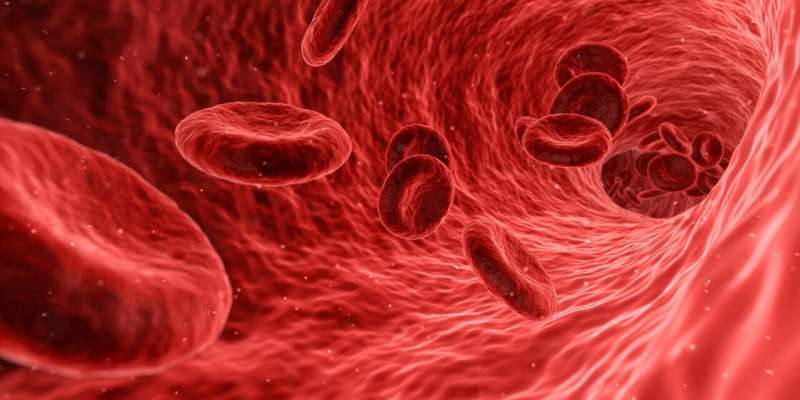Stress and blood vessel problems

Emory University School of Medicine researchers have uncovered an important risk pathway for cardiovascular disease (CVD) by utilizing an oft-cited fear—public speaking—to measure how stress changes the lining of blood vessels in patients with coronary artery disease (CAD).
While psychological stress is already associated with CVD, the Emory study—published in this month's issue of JAMA Cardiology – shows that stress-induced problems with blood flow in the heart can also be observed by monitoring blood vessels in the rest of the body.
The hypothesized mechanism underlying the link between stress and cardiovascular events is a stress-induced impairment in how the endothelial lining of blood vessels, which helps vessels relax and adjust to changes in blood flow, functions. The study found the presence of this defect can predict the likelihood of future adverse cardiovascular events in patients with CAD.
"This is the first study to show the prognostic value of transient endothelial dysfunction induced by mental stress in patients with coronary artery disease," says senior author Viola Vaccarino, MD, Ph.D., Wilton Looney professor of cardiovascular research, Rollins School of Public Health, and professor, division of cardiology, Emory University School of Medicine. "It points to endothelial responses to psychological stress as a major mechanism linking stress to cardiovascular outcomes."

The Emory team studied 569 people with known CAD who were asked to undergo a mental stress test consisting of public speaking on an uncomfortable topic. After the mental stress test, 360 of them displayed transient endothelial dysfunction. Over the next three years, those with transient dysfunction showed a 78 percent higher risk for major adverse cardiovascular events (heart attacks, unstable angina requiring revascularization, hospitalizations for heart failure, or cardiovascular death). The stress-induced change in endothelial function was valuable in predicting patient outcomes, over and above a list of other risk factors (age, sex, smoking, BMI, high cholesterol, high blood pressure, diabetes, etc.).
Psychological stress is thought to affect blood vessels via the sympathetic nervous system. Researchers observed that patients on beta-blockers, which control activation of the sympathetic nervous system, were less likely to display stress-induced transient endothelial function. This suggests possible avenues for clinical or behavioral interventions that may mitigate the effects of the stress response on blood vessels and ultimately the heart.
"Many stable CAD patients should be on beta-blockers regardless," says Bruno Lima, MD, Ph.D. cardiovascular research fellow in the Emory University School of Medicine and first author of the paper. "But this preliminary data suggest that ameliorating transient endothelial dysfunction might be another benefit of having beta-blockers on board."
More information: Bruno B. Lima et al. Association of Transient Endothelial Dysfunction Induced by Mental Stress With Major Adverse Cardiovascular Events in Men and Women With Coronary Artery Disease, JAMA Cardiology (2019). DOI: 10.1001/jamacardio.2019.3252


















